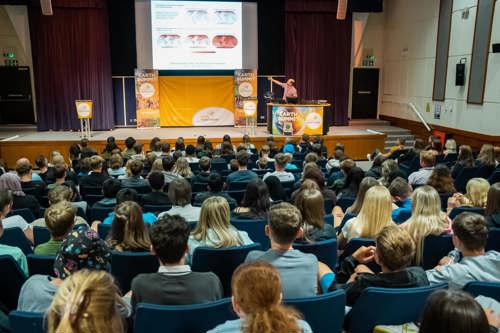-
Next Generation Travel Group
-
Our Brands
-
Resources
-
Blogs
- Contact Us
- Search
Making sure you have the right number of adults chaperoning your school trips is essential for overall risk management. Find out about student-to-teacher ratios for school trips, and why sticking to them is important.
Managing a coach-load of school children can be challenging for any one person, especially in an out-of-school environment. Most educational establishments will have a policy in place that states how many teachers should be present compared to the number of students.
When organising a school trip, it’s important to plan staffing arrangements well in advance, and over-compensate in case of changes in circumstance. Illness, family issues, and emergencies can all happen in the time between booking a school trip and going on one. If you plan with this in mind, you’ll never be caught short.
School trip ratios aren’t as simple as ‘x’ amount of students = ‘y’ amount of teachers. Other factors to consider include the nature of the trip, the trip duration, and the age of the students attending.
As educators, you know best how your students are likely to behave on a school trip. Ultimately, you will know better than anyone how many adults should be present, but the following should act as a guide to assist you in this decision.
The age of the children you are taking care of will impact how many adults should be present. Younger children will naturally need extra pairs of eyes, as they may be more prone to wandering. Older children may be more trusted to venture off alone once at the destination, meaning fewer adults are needed to watch them.
It’s also important to take into account any students who may have additional needs. Some children may require 1-1 or specialised support, and others may feel most comfortable with a particular teacher. While it’s not essential to have staff that reflect the gender mix of the students, it is important to consider any safeguarding issues that may arise if a student needs specific support.
Day trips in your local area are also likely to require less support than multi-day trips further afield. Gathering a large group of students in busy places like train stations and airports is a task that requires multiple adults. If you’re staying overnight, you also need to plan for any changes in circumstances, such as illness.
The nature of your school trip will have a significant impact on how many adults are required. Sit-down activities, such as theatre shows, will need less supervision than practical activities or walking tours. If you’re going on a trip that includes sports, you will need to consider the possibility of injury and plan accordingly.

Bearing in mind the factors listed above, the Department for Education (DFE) in the UK provides guidelines around school trip ratios to ensure the safety and well-being of students during educational outings.
Typically, the DFE advises schools to adhere to ratios such as:
It’s important for schools to consider these ratios as guidelines and to conduct thorough risk assessments before organising any school trips. Factors such as the destination, mode of transport, duration of the trip, and the presence of any students with additional needs should all be taken into account when determining appropriate supervision ratios.
Additionally, schools should ensure that all supervising adults have undergone the necessary training, have appropriate qualifications if required (such as first aid certification), and are familiar with the school’s policies and procedures for managing emergencies and ensuring the welfare of students during the trip.

The STAGED approach is a framework used in education to support inclusivity for students with disabilities or special educational needs (SEN). Each letter in “STAGED” represents a key aspect of the approach:
The STAGED approach helps teachers identify and support students who require it, in ways that work for individuals. When it comes to planning a school trip, teachers can use the information they have gained from this to aid in planning extra support for these students so that they can get as much out of the experience as their peers.

Ready to start planning your next school trip? Get inspired by the range of school trips we offer with Next Generation Travel, and get a quote today! We’ll support you through the planning process, taking away some of the stress you might be experiencing, and helping you create the best experience for yourself and your students.